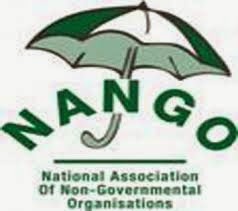
The Universal Periodic Review (UPR) is a mechanism that was established by the UN Human Rights Council in 2006. It is a country-to-country peer review mechanism of the overall human rights situation of the UN member states. It is based on objective and reliable information of fulfillment by each country of its human rights obligations and commitments made under the UN human rights architecture. The countries are reviewed every four and half years, and the process seeks to ensure universality of coverage and equal treatment of all countries. The UPR provides an opportunity for all states to share information on measures taken to improve the human rights situation in their countries and to overcome any challenges hindering enjoyment of human rights.
Zimbabwe’s human rights situation was reviewed for the second time under the Universal Periodic Review (UPR) Mechanism of the UN Human Rights Council (HRC), on 2 November 2016. Hon E.D Mngangagwa led a delegation, which went to make the presentation on how the country is fairing in terms of human rights issues. During the session, 86 UN member states made a total of 260 recommendations to the Government of Zimbabwe (GoZ) to improve its human rights situation on the ground. Following the presentation of the draft outcome report by the Troika (comprising of Kenya, Macedonia and United Arab Emirates) on 04 November 2016, GoZ accepted 142, rejected 18 and deferred for further scrutiny and consideration 100 of these recommendations. In this regards, Zimbabwe was therefore called upon to consider these and then prepare its position, which was then presented articulating the formal adoption of the recommendations at the 34th Session of the HRC which was held from 27 February to 24 March 2017. Zimbabwe made its presentation on the 16th of March 2017 and the Hon Vice President E. D Mnangagwa read through the issues, which were considered, noted and rejected by the Government of Zimbabwe.
The Government highlighted its position with regards the two hundred and sixty (260) recommendations. One hundred and forty-two (142) were supported during the session, eighteen (18) were noted and one hundred (100) were deferred, and highlighted that these needed further consideration at the national level. Hon Mnangagwa highlighted that; Zimbabwe considered the hundred deferred recommendations and fourteen (14) are supported. Government justification of considering the 14 on their view is that Zimbabwe has capacity to implement these within the next UPR cycle. Zimbabwe has accepted mostly recommendations that are in the process of being implemented in accordance with our developmental programmes. Eighty-six (86) of the deferred recommendations do not enjoy the support of Zimbabwe and have thus been noted. Further, on the noted recommendations Government indicated that Zimbabwe is unable to commit to implementation immediately.
Civil Society in Zimbabwe, has been participating in the UPR process under the coordination of by the Zimbabwe Human Rights NGO Forum (the Forum) working with the Zimbabwe Lawyers for Human Rights (ZLHR), and the National Association for Non-governmental Organisations (NANGO). CSO interventions included among others: the compilation of the Civil Society Organisation Stakeholders Report 2016, wherein a total of 68 CSOs that have been monitoring progress on implementation of the recommendations from the 1st Cycle in 2011/12, contributed and made their input; participation in the government led initiatives such as the UPR Steering Committee coordinated by the Ministry of Justice, Legal and Parliamentary Affairs; conducting national, regional and international advocacy missions with embassies and key strategic institutions such as parliament and the Zimbabwe Human Rights Commission; side meetings in Geneva as well as attending the actual review session in Geneva. CSOs representatives to the 34 sessions were NANGO, NGO Forum, ZimRights, Counselling Service Unity CSU and Zimbabwe Lawyers for human Rights. In addition, to increase awareness on the process, the coordinating organisations held public live screening of the Geneva proceedings, in Harare, Bulawayo and Mutare as well as feedback meetings on the outcomes from the November 2016 review process.
There is therefore need to continue sensitizing the stakeholders to monitor Government commitment and continue to lobby for the recommendation which were not considered.
The National Association of Non Governmental Organisations (NANGO) is the official coordinating umbrella body of Non-governmental Organisations (NGOs) operating in Zimbabwe. Its aim is to strengthen, represent and coordinate the work of NGOs in Zimbabwe by creating space, dialogue and engagement to enable the fulfilment of members’ visions and missions.
For comments and feedback please reach us through: [email protected]











